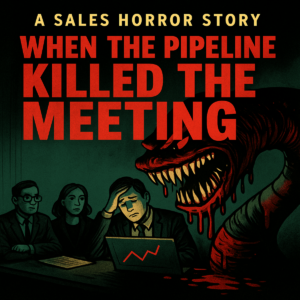My wife and I were just discussing what we might do for fun next summer. The possibilities are endless! We might go to the mountains, music festivals, mountain biking or the beach to name a few. Figuring out where to spend/allocate/invest time or money is something that people and businesses do every day. Cost is definitely a factor, but where to go for a fun summer vacation is a fun, emotion-based decision. There is an element of emotion behind many business decisions as well, but logic comes into play more than a personal decision to take a summer vacation. Business owners know they need to invest in marketing, but they struggle to bring logic into that particular decision. They know they need to invest in marketing, but usually are asking themselves:
- How do I go about it?
- Where do I invest the money?
- How much should I spend on marketing?
All of these questions will be answered here, but let’s look at the last one in particular. The SBA suggests:
“As a general rule, small businesses with revenues less than $5 million should allocate 7-8 percent of their revenues to marketing…If your margins are lower than this, then you might consider eating more of the costs of doing business by lowering your overall margins and allocating additional spending to marketing.”
All of the questions are really related though. From a logical standpoint, one of the consistent challenges is understanding the return on your marketing investment. The SBA quote above talks about “allocating” money towards marketing. To me, “allocating” money doesn’t really imply any sort of return on your marketing spend. Let’s reframe allocating and spending and call it investing. The concept of investing implies there is some sort of positive return for the business, which should be at least a bit more comforting for business owners. Let’s look at 3 considerations of an investment in marketing:
- What areas of your business does marketing impact?
- How does your investment in marketing impact your sales team?
- Are the marketing metrics that you track tied to your business goals?
What areas of your business does marketing impact?
Typically when contemplating investment in marketing, the main consideration is lead generation. When done properly, marketing moves the needle not only for generating leads for net-new business, but also for expanding your share of wallet with your existing client base. You may be asking, what role does marketing have in selling more to my current client base? Isn’t that what the account management team is for. The primary ingredient in any marketing plan is content. Content can and should be used throughout your entire ideal client life cycle. Looking a bit closer, here is how content impacts the client experience:
- Connect and gain some initial trust from prospects that have problems that you are good at helping to solve
- Reduce friction through your sales cycles and entire client experience by answering the questions that your clients have along the way
- Communicate use cases and success stories of the outcomes that your clients realize through engaging with your business, opening your clients’ eyes as to additional ways that you can help them
You may be thinking that it is very challenging to measure the impact of this. More on that in a bit!
How does your investment in marketing impact your sales team?
Sales and marketing departments are traditionally misaligned. Interestingly, they have the same goals in mind and they work for the same company. Something’s wrong with this picture, right? When sales and marketing teams are working together, the content that marketing creates should be intensely connected with your ideal clients and the efficiency of your sales team in closing business should be dramatically improved. Having spent the initial part of my professional career as a sales rep, I can’t tell you how much time I’ve spent creating the perfect email to go to a prospect to convey the message that would most certainly turn them into a client shortly after I pressed send. Imagine your sales reps having content centrally available to support about anything that they would need to communicate with prospects and clients. An eye-opening point is that sales efficiency can be the biggest return that you might receive on your investment in marketing. In addition, the burden of creating this messaging does not fall upon the sales rep which makes them a lot happier! Once again, it is hard to have a vehicle to measure sales efficiency. Let’s look at that next.
Are the marketing metrics that you track tied to your business goals?
We are currently working with a company to develop a revenue growth strategy that came to us with a story that we hear all too often. They were working with a marketing company, but they are not really sure if the marketing company is doing a good job. The marketing company was very active, and was sharing reports that’s substantiated their work, but they were confused and couldn’t tell if it was actually making an effect on their business. The reason we often hear this is that there is typically a chasm between the metrics that a marketing company delivers and the goals of the business. Many times, the metrics that marketing companies deliver are only top-funnel, and are the same for all of their clients. Different businesses have different goals, right? So shouldn’t the metrics be different? A good approach is to:
- Start with the high level goals of the business. Typically, these are around revenue or profitability
- Associate metrics with the different stages of your ideal client experience (New Ideal Clients, Revenue Per Client) that directly impact your high level metrics. So, that is a good place to focus next.
- Finally, coming down a level from there, your sales and marketing metrics should be directly connected to your ideal client experience.
It should be easy to see that the metrics for all clients should not be the same for all businesses! In conclusion, let’s revisit the big question here: How much should I invest in marketing? If your sales and marketing metrics are properly connected with the business goals, and the needle is moving in the right direction, the logical answer to the question should be: MORE!




